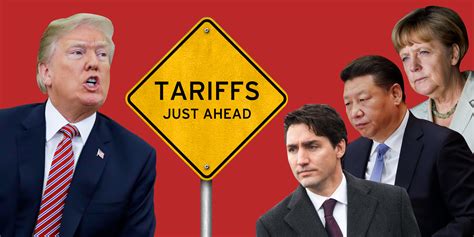The world is abuzz with economic tension as major economies navigate the rocky terrain of tariffs imposed by the United States. It’s a high-stakes game where every move carries significant consequences, from diplomatic tensions to potential economic downturns.
Global Reaction:
Amidst this trade turmoil, countries like China, Canada, and the European Union are strategically responding to Trump’s tariffs in various ways. While some are retaliating with their own tariffs, others are opting for negotiation in an attempt to reach a compromise.
As the U.S. implements sweeping tariffs on imports, nations find themselves at a crossroads, forced to make tough decisions that could impact their economies and international relationships.
China Strikes Back:
One of the first countries to retaliate was China, imposing a hefty 34 percent import tax on American products. This move triggered a tit-for-tat escalation as the Trump administration threatened further increases in tariffs if China didn’t back down.
Canadian Countermeasures:
Canada also took action by placing tariffs on a range of U.S. goods in response to American duties. The country stood firm against what it perceived as unfair practices while seeking avenues for negotiation.
EU’s Calculated Response:
The European Union showcased its strategic stance by preparing retaliatory measures against U.S. goods while keeping negotiations open. With billions at stake in exports to the U.S., EU officials worked towards finding common ground amid escalating tensions.
Negotiation vs Retaliation:
Countries like Japan and South Korea faced limited options for retaliation and looked towards concessions as a way out of the tariff maze. Offering compromises and discussions became key strategies for these nations caught in the crossfire of global trade disputes.
Diplomatic Balancing Acts:
From India offering tariff reductions on specific goods to Switzerland expressing bewilderment over tariff calculations but refraining from retaliation, each nation navigated its unique path through this intricate web of international trade policies.
Expert Insights:
According to trade analysts, these responses highlight the delicate dance between safeguarding national interests and maintaining global economic stability. The interconnected nature of modern trade means that no country is an island when it comes to tariffs – actions have far-reaching repercussions across borders.
In conclusion:
The current landscape underscores the complexity of modern trade relations and emphasizes the importance of dialogue and cooperation in resolving disputes without causing widespread economic upheaval.



Leave feedback about this